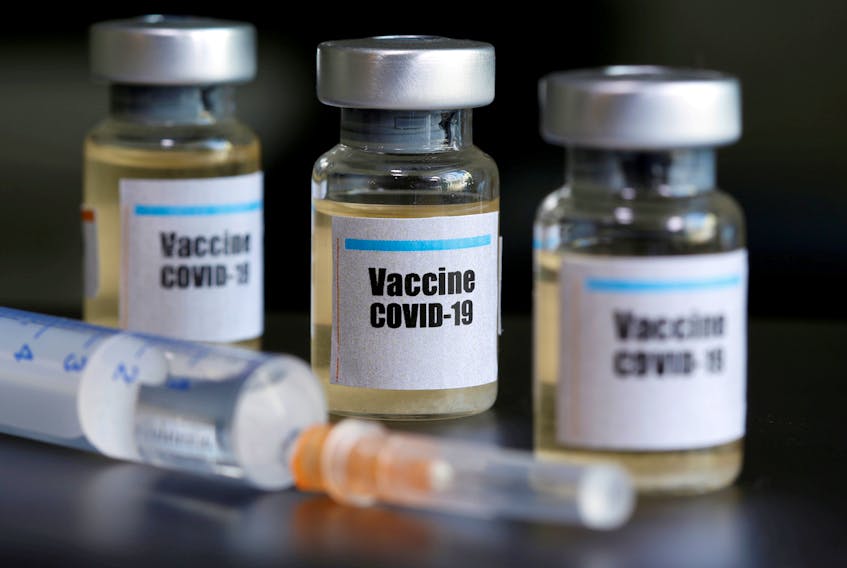Nine of the world’s biggest pharmaceutical companies have just promised not to apply for regulatory approval for any new COVID-19 vaccine before it has gone through all three phases of clinical study. Why would they do such a thing?
You’d be surprised if brain surgeons got together and promised not to operate while drunk, or if the bus drivers’ union publicly pledged that its members will not drive recklessly.
They don’t do that because operating sober and driving carefully are just part of the job. So is ensuring that new vaccines are safe and effective.
Yet nine major players in the international pharmaceutics market — AstraZeneca (U.K.-Sweden), BioNTech (Germany), GlaxoSmithKline (U.K.), Johnson & Johnson (U.S.), Merck (Germany), Moderna (U.S.), Novavax (U.S.), Pfizer (U.S.) and Sanofi (France) — all felt obliged to reassure the public that they won’t cheat.
What’s up?
Obviously, it’s the perception that other players in the same market may indeed be cutting corners.
We’re not talking here about Russia and China, both of which have begun inoculating some key workers with vaccines that are still listed by the WHO as being in clinical trials. No surprise here: everybody knows that those regimes break the rules whenever they feel like it.
Usually the Trump administration’s actions are viewed with weary resignation by the rest of the world, but it would still be a very big deal if the United States started distributing a vaccine that had not been properly tested.
Yet the signs are that that’s just what is going to happen.
Last month at the Republican national convention Donald Trump told the delegates and the country: “We are developing life-saving therapies, and will produce a vaccine before the end of the year, or maybe even sooner.”
On Sept. 4, the U.S. government’s Centers for Disease Control and Prevention (CDC) told American health officials that “limited COVID-19 vaccine doses may be available by early November 2020.”
More specifically, the CDC urged state authorities to consider “waiving requirements” and grant permits to McKesson Corporation so they can start distributing a vaccine by Nov. 1.
You don’t need a weatherman to know which way the wind blows.
The presidential election is on Nov. 3, two days later: that’s long enough for the glad news to get around and floating voters to be swayed in favour of Trump, but too short for any defects in the rushed vaccine to come to light.
Trump is going to liberate Americans from the curse of COVID-19 in a little less than two months. If the vaccine’s miraculous properties subsequently fade, even it turns out to kill large numbers of people, that won’t matter. The votes will have been counted, and Trump will be back in office for another four years.
That, at least, is the scenario that is currently envisaged by the people around Trump.
It is a plausible one, especially if the race has tightened by then.
Just 100,000 votes in three states, mostly from people who had previously voted Democratic, put Trump in the White House in 2016. A miracle vaccine could certainly swing that many votes again.
The nine pharmaceutical majors who felt the need to issue a “historic pledge” to uphold scientific and ethical standards were doubtless driven by this scenario. Even if there really has been an American breakthrough, they would still have to cope with the public’s suspicion that Trump is cheating — and the mistrust that will also attach to any other early vaccines.
It is possible that the vaccine or vaccines that Trump is about to unleash on the American public really do work and are safe. It would be a historic first in the development of vaccines — having a COVID vaccine ready for general use by next June or July would normally be seen as a remarkable achievement — but miracles do happen.
The problem is that they don’t happen often, and if the full testing regime is not followed, you don’t know if this is one of those times.
It’s only because the AstraZeneca/Oxford University vaccine was going through the full third phase of tests, involving tens of thousands of individuals and many months of testing, that they recently spotted a bad reaction requiring hospitalization and paused the tests. The American miracle vaccine will only start third-stage tests at the same time that it is made generally available.
Pauses like AstraZeneca/Oxford University’s happen often in the development of a vaccine, and the pause will probably only be temporary.
But even a very low-frequency bad reaction can be a mass killer when tens of millions of people are being vaccinated, and these are not desperately sick people willing to risk anything for a cure.
They are people in good health, and you mustn’t kill them.
Gwynne Dyer’s new book is “Growing Pains: The Future of Democracy (and Work).”









